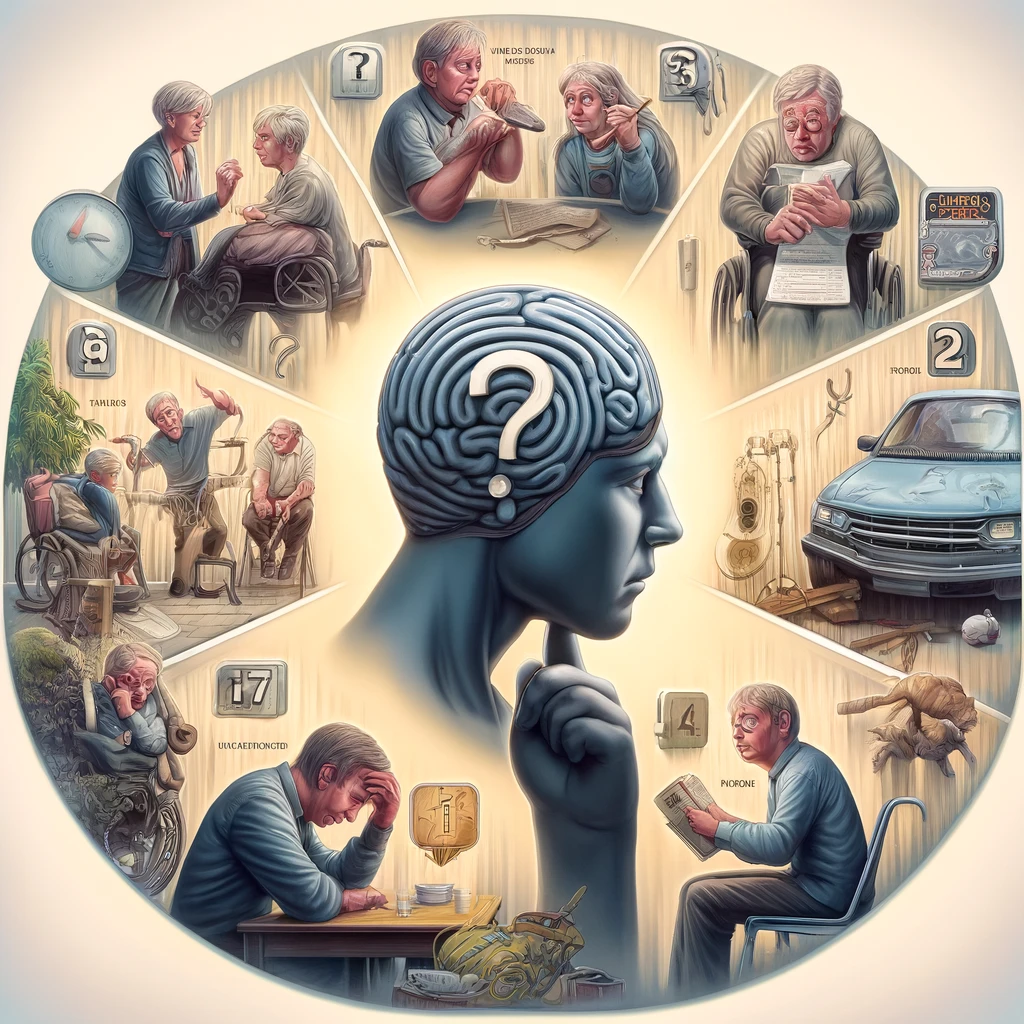5 Early Signs of Alzheimer’s and a Self-Test

Alzheimer’s disease, a neurodegenerative disorder, leads to memory loss, cognitive decline, and eventually, loss of ability to carry out the simplest tasks. Early detection can be crucial for managing symptoms and planning for the future. In this article, we will explore five early signs of Alzheimer’s disease and introduce a simple self-test that can be a preliminary tool for recognizing potential symptoms.
It’s important to note that these signs and tests are not definitive diagnoses but can be a helpful alert to seek professional medical advice.

1. Memory Loss Affecting Daily Life
One of the most recognizable early signs of Alzheimer’s is memory loss, especially forgetting recently learned information or important dates and events that one would normally recall easily. This is not just occasional forgetfulness like misplacing keys or forgetting a name but a persistent and noticeable loss of memory that disrupts daily life. It often starts with difficulty remembering recent conversations or events and progresses to more profound memory loss affecting the recall of significant personal details.
2. Challenges in Planning or Solving Problems
Some individuals may experience changes in their ability to develop and follow a plan or work with numbers. They might find it hard to follow a familiar recipe or keep track of monthly bills. Concentrating and taking much longer to do things than before are common signs. These difficulties can range from mild to severe, significantly impacting one’s ability to function independently in daily activities.
3. Difficulty Completing Familiar Tasks
Alzheimer’s can make it hard to complete daily tasks. Early on, people may find it challenging to drive to a familiar location, manage a budget at work, or remember the rules of a favorite game. As the disease progresses, more common tasks may become difficult, impacting an individual’s independence and leading to frustrations over seemingly simple activities.
4. Confusion with Time or Place
Losing track of dates, seasons, and the passage of time is a common early sign. People with Alzheimer’s can lose understanding of where they are or how they got there. They may have trouble understanding something if it is not happening immediately. This confusion can lead to disorientation, anxiety, and difficulty in planning ahead or recalling recent experiences.
5. Trouble Understanding Visual Images and Spatial Relationships
For some, having vision problems is a sign of Alzheimer’s. This may lead to difficulty with balance, trouble reading, or problems judging distance, which can cause issues with driving. These difficulties stem from brain changes affecting visual processing, rather than typical age-related vision decline such as cataracts.
Self-Test for Early Detection of Alzheimer’s
A simple self-test cannot diagnose Alzheimer’s but can indicate if an individual should seek professional evaluation. One common tool is the Self-Administered Gerocognitive Exam (SAGE) which helps identify early signs of cognitive, memory, or thinking impairments.
Instructions:
- Memory Task: Try to memorize a short list of words, engage in a different activity for a few minutes, and then attempt to recall the list.
- Clock Drawing: Draw a clock showing a specific time, testing your ability to visualize and plan spatially.
- Calculation and Problem-Solving: Solve a few basic math problems to assess your problem-solving capabilities.
- Language Ability: Write a brief description of a recent event, focusing on your ability to recall details and construct coherent sentences.
Scoring and Next Steps:
This self-test is purely indicative. Difficulty with one or more tasks suggests it might be wise to seek a professional assessment. However, a perfect score does not guarantee the absence of Alzheimer’s or other cognitive issues. Alzheimer’s is a complex disease with a range of symptoms and effects that vary greatly among individuals.
Conclusion
Recognizing the early signs of Alzheimer’s can be challenging but is essential for early intervention and planning. If you or a loved one are experiencing symptoms like those described, consult a healthcare provider for a comprehensive evaluation. Early detection can open up opportunities for treatment, support, and planning, helping to manage the impact of the disease on daily life.
Remember, early signs and symptoms of Alzheimer’s disease can vary widely. A professional assessment is critical for an accurate diagnosis and to rule out other possible causes of symptoms.




